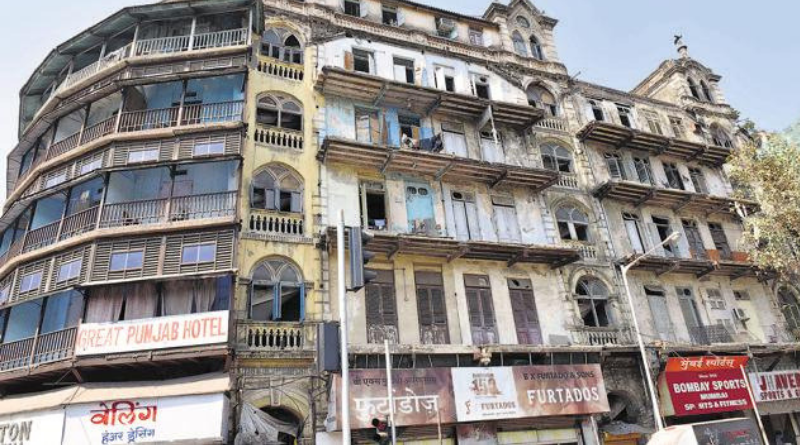Quo vadis the expat Goan association?
An interesting article by Frederick Noronha in Navhind Times (posted June 23, 2019) touches on a topic close to every expat Goan heart:
How do we maintain and stay connected to our Goan culture ?
What about the younger generation?
He suggests a few tips on how expat Goans can stay connected with Goa and ensure its not an obituary for expat Goan associations.
One part of Goa exists outside Goa. Actually, there are many such tiny parts of Goa which lie outside the region. Like distant limpets connected to us but far away from our shores, the Goan expat groups scattered across the globe are very much part of our place, even if we mostly overlook and ignore the same.
Goan expats have often been summarily dismissed. They are seen as wanting to have to do little with Goa itself. As not understanding their home state. Or having forgotten its language. Like all stereotypes, this is partly true but wholly false. Attitudes of expats to Goa vary depending on where they are based, how old they are, and what links they’ve had with home. If they get closer opportunities to stay connected, many more would surely do so.
Goa once had a rich cherished connection with its expats. The writer on Goan emigration, late J B Pinto of Saligao and Socorro, lists scores of Goan kudds in Bombay from the 1950s. In a little while, Goan expats in the UK and Canada will be celebrating their annual mega meetups. While googling for the Norwegian Goan Association in Oslo, I found it was just one of four such Indian organisations listed online. (The other three were the Indian Students’ Forum, the Tamil Students’ Club, and the Vishwa Hindu Parishad).
But times are changing. The kudds (Goan hostel-type residential clubs in Bombay) are closing down. It takes decades, if not centuries, to build something. But all is needed is just a short while, and a few unhelpful individuals, to close down such initiatives.
While passing through Hubli some years back, I saw the decaying structure of a once proud club house close to the heart of town. In Pune, locals complained that at the historic and old Poona Goan Institute, community activities are at a low ebb and the hall is more often rented out to traditional wedding events (to just about anybody). If you talk to old-timers among the UK Goans, they would tell you about plans to build an East Africa-style Goan clubhouse there, which ended up in an untimely fire.
So has Goa lost its collaborative gene? Are we unable to work together like we once did? Or is it just that overall ‘affluenza’ in the community has decreased the need for people to cooperate, collaborate, and work together?
Whatever the case, in the past week, one was interacting with a Goan village association in the UK. On the one hand, some of its members have put in a lot of work and initiatives to keep things going. But, at the same time, there’s also despondency and uncertainty about how much longer such initiatives can be kept going.
So, here’s an attempt to suggest some steps that could keep these critical networks alive and active, if not kicking.
*Visibility online: Many Goan groups are hard to locate and track down. Is it just that we’re poor in communicating? With social media all around us, we really have no excuse. Unless these associations are easy to find, their chances of growth are limited. Maybe more affluent sections of the community would not like to be too accessible to just about anyone. But this is a crucial part of being a public, an accessible organisation.
* Start writing: Most Goans don’t believe in staying in touch, in writing. A regular complaint from the outside world is that people mostly don’t get replies to emails or letters sent in to parts of Asia, including Goa. Correspondence needs to be taken seriously, and all events need to be announced. Earlier, a few community magazines could get the word out. Now, social media has changed the game completely.
*Build the links: When you ask an association whether they know someone living in their own city, the answer often is negative. It’s strange that in these networked times efforts are not made to get to know one another. Maybe in other times, everyone was just closer – geographically and emotionally. Now, with migration levels having grown even more, a lot more effort needs to go into this.
*Network with home: Even those communities who believe they would never need to return to Goa, need to stay in touch with people and issues back home. They need their own ways of finding out what’s going on in Goa (newspaper websites make it easy now). They need to also connect with the rest of the ‘Goan’ world overseas.
*Remember, these are changing times: Migration levels have grown drastically at the global scale too. The same rules that worked in the game even one generation or a decade ago are unlikely to prove effective now.
*What about the younger generation? Expats tear their hair out about the lack of interest among the younger generation in Goa. Do they expect interest-levels to stay frozen across time? Some countries are so multi-cultural that youngsters have little awareness of Goa. Goans fit in anywhere, which can also be a handicap. The lack of continuing contact with Goa, for whatever reason, also contributes. Many of those among the ‘Bomoicars’, who kept in touch with Goa, do show signs of sustaining links. It is also possible that expats get interested in issues of ancestry and roots only once they cross a certain age, say their 30s or 40s. So, patience….
* Help, and think of others: Once we get onto a crowded bus (or train), the tendency is not to help others who also want to get on it. This attitude spills over to the diaspora too. It’s only in some places (maybe the Gulf) where the expat Goan is more helpful and considerate towards one another. How do we sustain the positive values of our past?
* You’re part of a wider reality. No man is an island, neither is the expat. Unless the diverse Goan expat associations talk to each other, share tips and learn, they are unlikely to gain the effectiveness they seek.
* Learn to be different: The Goan diaspora (and back too) has earned the reputation of being too caught up with entertainment and parties. But there are issues beyond celebrations. Like the economy and politics. While other Indian expat communities have built quite amazing roles for themselves, one of the earliest (from Goa) has yet to find its bite.
* Take up your concerns here: To be effective in their roles, the expat Goan really needs to get his or her voice heard back in Goa. For this to happen, issues affecting them (both there and here) need to be listed, taken up persistently with the authorities, and put on the agenda.
It is not time to pen an obituary of the expat Goan association. Their functioning is hampered with a lot of handicaps and challenges.
But surely, a start could be made to inch closer to that role they seek for themselves, and Goa?
Read the original article here -> Quo vadis the expat Goan association?




